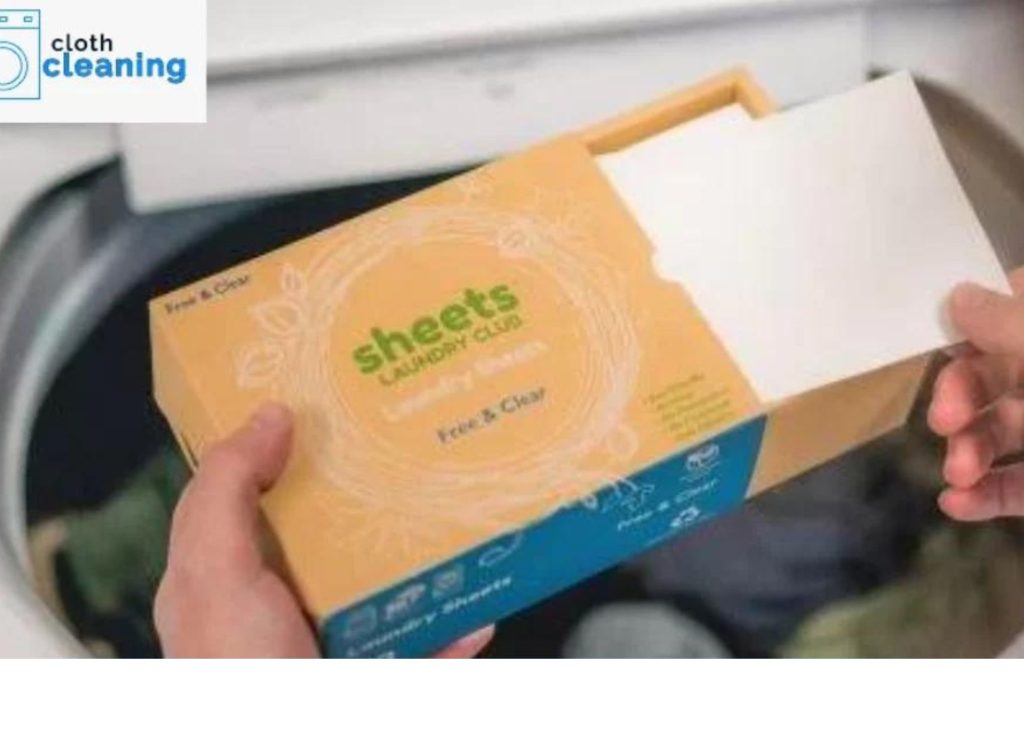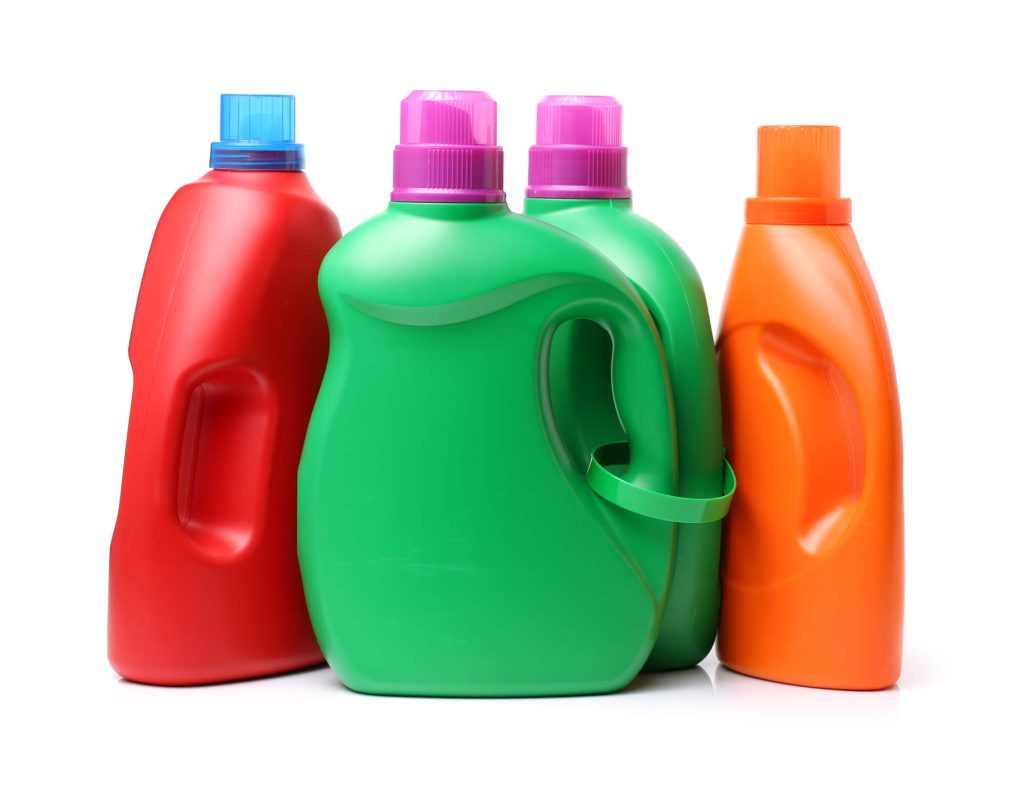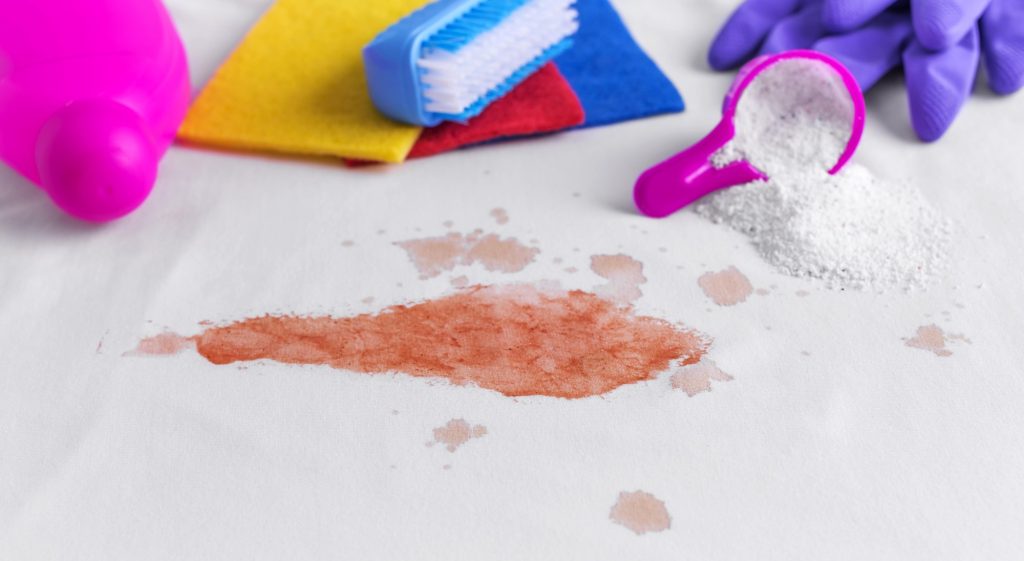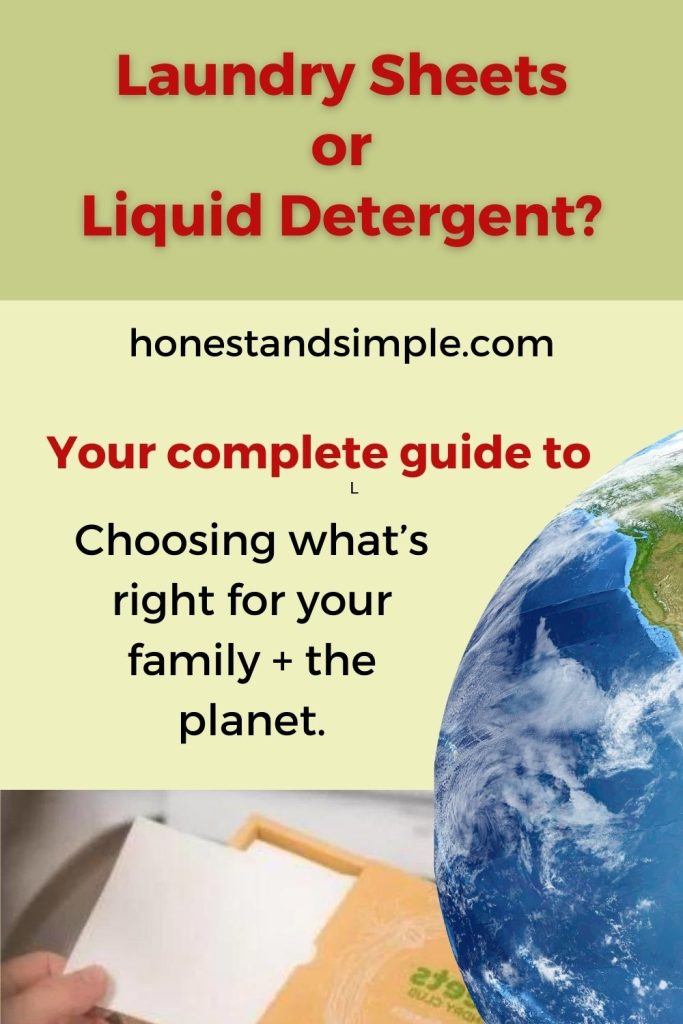Are you interested in adopting a greener laundry routine? Have you thought about ditching bulky plastic detergent bottles for laundry detergent sheets? Today I’m sharing some useful information so you can decide if this switch is right for you.
Laundry detergent sheets are gaining popularity over liquid detergents, especially among environmentally conscious consumers.
Who can argue with the convenience of tossing a thin, concentrated sheet into the washing machine and reducing plastic, right?
I’ve been thinking about making this swap myself for a while now — but I keep hesitating to click the “buy now” button.
To be honest, I’ve had nagging questions: Are the sheets truly eco-friendly or is it just marketing hype? Will they clean as well as my go-to detergent? Are they pricier?
I finally decided to dig a little deeper into the good, the bad and the dirty of laundry sheets and here we are!
After doing some research, I’ve realized there aren’t any clear-cut answers. So my goal today isn’t to push laundry sheets on you as a greener choice but to share helpful information so you can decide for yourself.
Note: Some companies market laundry pods just like laundry sheets. But there’s a difference in their environmental impact, so we’re only talking laundry sheets, not pods, today.
Let’s get started!
Basic FAQs
What are laundry sheets?
Laundry sheets are thin paper-like sheets containing concentrated detergent and other cleaning agents. They look a lot like dryer sheets but they’re designed to clean your clothes, not as a fabric softener or static-reducer.

How do you use laundry detergent sheets?
It’s simple! You just toss a sheet into the washing machine with your laundry and the sheet dissolves, releasing the detergent. Each brand will give you a recommended “dose,” from one-half of a perforated sheet up to two full sheets, depending on the size of your load and how soiled it is.
Can you use laundry sheets in all types of washing machines?
Yes, they’re usually compatible with all types of washing machines, including high-efficiency (HE) machines.
Are they suitable for sensitive skin? Are they available unscented?
Yes to both questions. Some brands offer hypoallergenic options. If this is essential for you, you’ll need to check the ingredients carefully for anything that might trigger skin sensitivities. There are also scented and unscented options available.
Are detergent sheets more expensive than traditional detergents?
This is a tough question to answer. I’ve seen a wide range of prices, from 20 cents per load to 80 cents per load, with some online companies charging shipping on top of that. There are discounts available if you subscribe to regular shipments. You’ll need to do the math for yourself and compare it to the cost-per-load for your current detergent.
Beyond the Basics: What are the Main Pros of Laundry Sheets?
- Laundry sheets are less messy than liquid or powder detergents that you have to measure and pour. All you do is drop a sheet into your machine.
- They’re easier to take with you when traveling or if you need to make a trip to the laundromat.
- They’re lightweight, making it easier for those who have trouble lifting heavy detergent bottles.
- The majority of laundry sheet companies offer products that are free from phthalates, parabens, bleaches, and dyes. That being said, you should still check the ingredients list before buying and you could also check the EPA’s Safer Choice program for laundry products certified safer for human health and the environment.
- One of the biggest selling points — according to the companies that make them — is that laundry sheets eliminate plastic jugs that often end up in landfills and take years to break down.
A closer look at discarded laundry jugs
According to treehugger.com, about one billion plastic laundry jugs are discarded in the U.S. each year! Seventy percent end up in a landfill while only thirty percent are recycled.

Are Laundry Detergent Sheets More Environmentally Friendly?
Now let’s take a closer look at the claim that laundry sheets are better for the planet. They can be a greener option in several ways:
- Better Packaging: They’re typically offered in recyclable paper or cardboard packaging instead of plastic.
- Fewer Fossil Fuels — Plastic laundry bottles are made from fossil fuels in a process that contributes to climate change. Spoiler Alert: Most laundry sheets also contain a type of plastic made from fossil fuels — but in much smaller amounts. We’ll talk more about that in a minute.
- Lighter Shipping Weight: Since detergent sheets are lightweight and compact, they require less fuel for transportation. This can result in lower carbon emissions, depending on where they’re shipped from.
- Reduced Water Usage: Liquid detergents are about 90 percent water while detergent sheets are concentrated. They’re also pre-measured — which means you’re less likely to use too much soap, requiring extra water for rinsing.
What are the Cons of Laundry Detergent Sheets?
1. They’re not widely available at local retailers.
You might not find laundry sheets at your local grocery store or retailer. Many brands are sold online only, often with subscription options.
2. Most contain plastic.
Sadly, it’s true. While you’ll see laundry sheets hyped everywhere as “plastic-free,” I’ve learned that the majority of them contain PVA – or polyvinyl alcohol, which is a type of dissolvable plastic woven into the sheets to keep them intact until they get wet.
PVA is everywhere! You’ll find it in fabric softener sheets, contact lenses, glues, dishwasher pods, food packaging, pharmaceutical products, household sponges, toilet cleaner pods, textiles — and more.
For what it’s worth, the FDA has approved the use of PVA for many applications and has concluded, after years of study, that its oral toxicity is very low and it’s “relatively harmless.” [Science Direct]
What is the environmental impact of PVA?
Polyvinyl alcohol is water soluble — so we might magically think it will disappear in our washing machines.
However, dissolved plastic doesn’t vanish. It ends up in our local sewage system and eventually makes its way to our wastewater treatment plants. As it turns out, most wastewater treatment plants in the U.S. today aren’t optimized to break down microplastics.
The result? When we use laundry sheets, we’re allowing PVA to get into our soil and water — where it has the potential to harm fish, wildlife and humans — despite what the FDA tells us about its low toxicity.
Consumer alert: A lot of brands market laundry sheets as biodegradable. Don’t be influenced by this claim! They are biodegradable under the right conditions (the right temperature, suitable microbes and enough time). But, again, the majority of municipal wastewater treatment plants don’t have the right conditions.

3. In one lab test, laundry sheets didn’t clean as well as traditional detergent.
Consumer Reports ran a head-to-head lab test with traditional laundry detergent vs. laundry sheets and the results weren’t impressive. They found that heavily soiled loads didn’t fare as well when washed using detergent sheets.
CR tested six brands: Earth Breeze, Ecos, Ecowise, Kind, Sheets Laundry Club and Tru Earth. They used swatches saturated with blood, body oil, chocolate, coffee, dirt, grass and salad dressing.
The sheets were tested against liquid or pod detergents, with Tide Plus Ultra Stain Release liquid detergent being the top performer and coming in at an overall rating of 84.
By comparison, the lowest-rated laundry sheet from Tru Earth received an abysmal score of 11 while the highest-rated brand was Earth Breeze at 29. Keep in mind that this is for tough, heavily-stained laundry. [Read the Consumer Reports article here.]
The Good Housekeeping Institute also ran a cleaning test of 20 brands of laundry detergent sheets and released their top five performers. A brand called EC30 came out on top because it was the only one to remove spaghetti sauce stains.
I was disappointed, however, that they didn’t compare the cleaning performance of the sheets to regular liquid or powdered laundry detergents. [There’s still a lot of good information here: 5 Best Laundry Detergent Sheets, Tested by Experts]
4. Many Laundry Detergent Sheets are Made in China.
It’s a little difficult to sleuth this out — because companies marketing their products as all-natural and environmentally friendly don’t want you to know that they’re being manufactured in China.
I scoped out the brands tested by Consumer Reports and in some cases, had to email the company if the information wasn’t obvious. I’m also sharing information from the Good Housekeeping Institute’s review. Out of the ten brands looked at, only two are made in the U.S.:
Made in China
- Clearalif
- Earth Breeze
- Grove Co.
- Kind
- Sheets Laundry Club
Made in North America
- Beyond Laundy (Canada)
- EC30 (U.S.)
- ECOS (U.S.)
- Norwex (Canada)
- Tru Earth (Canada)
Note: Ecowise, which was tested by Consumer Reports, appears to have been discontinued. Also, Sheets Laundry Club claims to be in the process of moving its manufacturing from China to the U.S., but there’s no way to verify this.
So that sums up my research on laundry detergent sheets for now.
I hope you found this information helpful and you’re ready to decide:

Should You Switch to Laundry Detergent Sheets?
I don’t really see a clearcut right or wrong answer to this question. Once you’ve weighed all the pros and cons, you’ll need to make a decision based on your own personal green living values and what you’re looking for in a laundry product.
If you’re still undecided, here are a few questions to ask yourself:
- Do I want to reduce the number of plastic bottles I’m adding to the waste stream?
- Am I satisfied with less plastic waste — that is, am I okay with plastic microbeads from laundry sheets going into our waterways?
- Would I prefer to find a completely plastic-free option for our laundry detergent?
- Do the other environmental benefits (better packaging; fewer carbon emissions, less water usage) outweigh the plastic negatives?
- Will laundry sheets clean well enough for our family’s needs?
- Is having a laundry product that is lightweight, compact and pre-measured important to me?
- Do I want the convenience of having laundry sheets delivered to my door when I need them?
- Am I willing to pay a little extra (in many cases) for a product that is overall kinder to the environment?
Here’s what I’ve decided to do
Now that I’ve finished my research, I’ve decided to hold off on purchasing laundry sheets. I think they’re a great idea that needs more work and in my opinion, the detergent companies need to do better.
Maybe I’m expecting too much — but I’ll gladly hit the “buy now” button when I can find an affordable, made-in-the-USA brand that cleans well and is also PVA-free. (I’ve searched…but no luck so far!)
One of the turn-offs for me is the questionable marketing being used. When blogger Emma Dendler on simpleenvironmentalist.com, emailed several brands and asked them if their laundry sheets contained plastic (they all did) — a few companies dodged the question, saying theirs had PVA but technically it’s not plastic (false).
Some detergent companies also try to conceal where their products are made by listing their U.S. distribution sites instead of saying, “Made in China.” Hiding facts like this isn’t cool, IMO.
For now, I’ve decided instead to look into a refill station for our laundry detergent. That means we’ll bring an empty plastic or glass container to the store and refill it with their brand of laundry detergent.
If the refill idea doesn’t work out, I plan to look into powdered tablets sold in paper or cardboard packaging. Just as I was hitting publish on this post, I saw that Blueland detergent might be a good choice. As a final option, I might even try using soap nuts, an idea that has always intrigued me. I’ll let you know how it goes!
Now it’s your turn. Did you find this information useful? Will you try laundry detergent sheets or stick with what you’re currently using? Please let us know in the comments.
I am not a licensed nutritionist, medical professional or cosmetics expert. The information provided on Honest + Simple is for general informational purposes only. The statements on this website have not been evaluated by the Food + Drug Administration and are not intended to treat, prevent or cure any disease. Before making decisions about your health or other concerns, please consult a qualified professional and do not rely on this website for medical advice.




